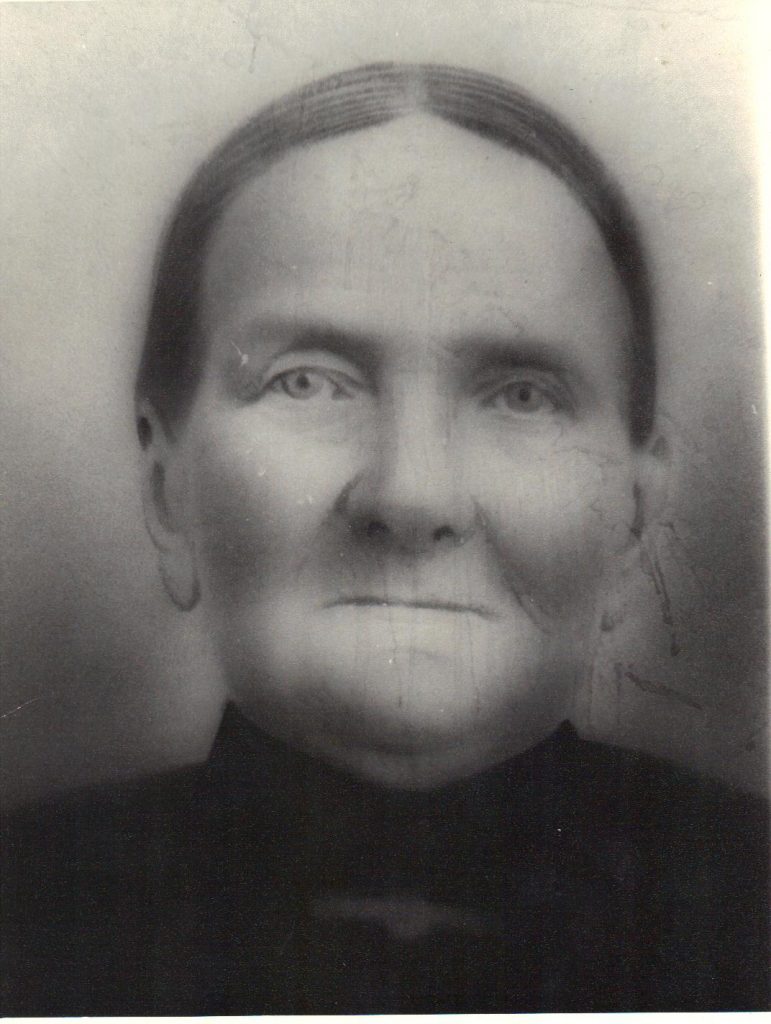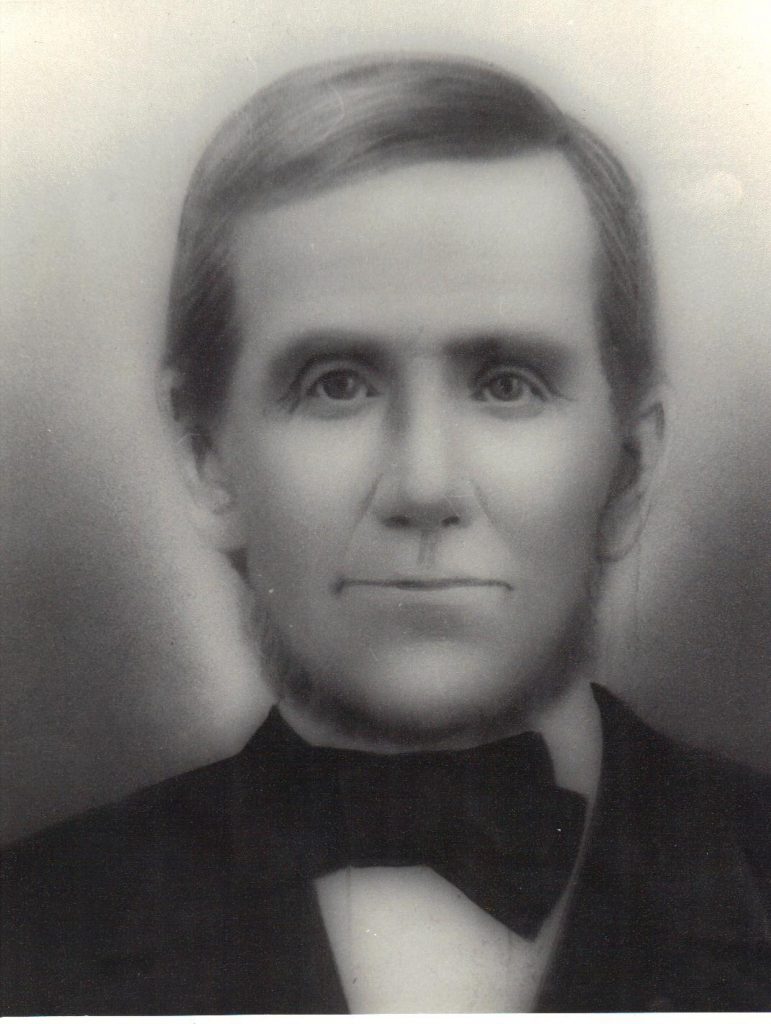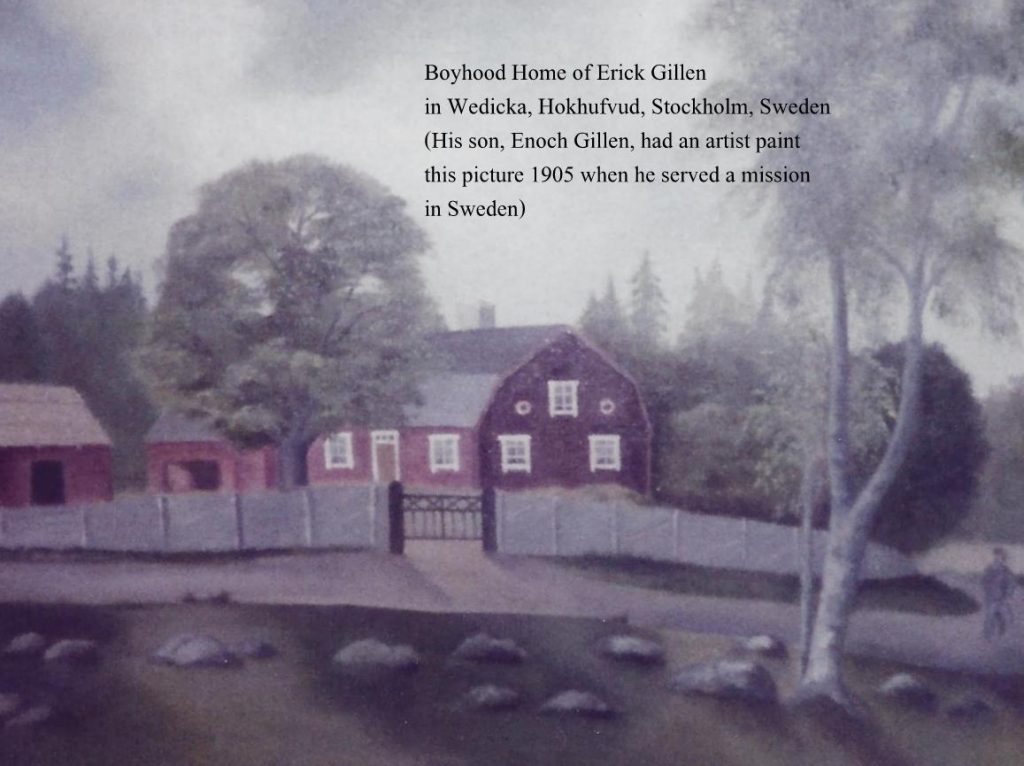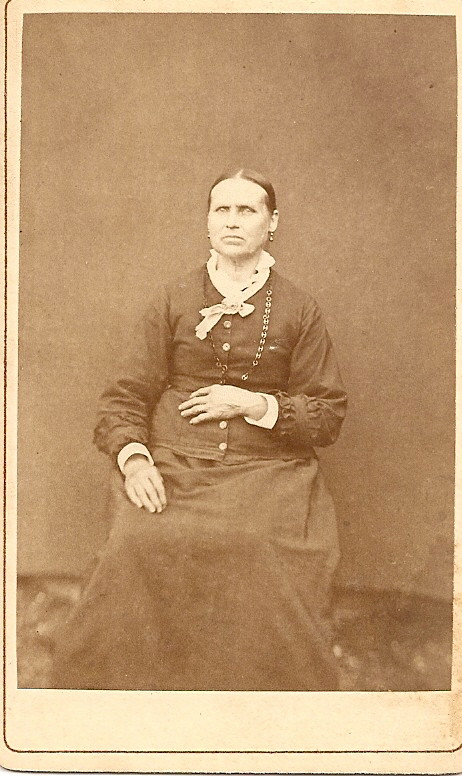


Wedicka, Hokufvud, Stockholm, Sweden
Anna Gretta and Erick Abramsson Gillen Farm. Their grandson Enoch had an artist paint the farm while on his mission in 1905
Erick Gillen, Life Story (September 8, 1852-June 4, 1930) History of Erick Gillen’s life as taken from his own journal, started June 20, 1881, written in Swedish and translated to English; with other experiences related by friends and relatives who knew him. Most of this history was written October 1945 by his daughter, Mamie Gillen Pierson. Erick Gillen, son of Erick Abrahamsson Gillen, and Anna Margreta Andersson, was born September 8, 1852 in Hokhufvud, Stockholm, Sweden. His mother, Anna Margreta, had been married before and had four living daughters: Anna Maria, Greta Stina, Cathrina Gustava or Stava and Josephina who was about three years older than Erick. Their father, Erick Ersson Ronnberg had died and their mother remarried Erick Abrahamsson Gillen. Erick was the only child of this union. Erick started school when he was seven years old, learning reading, writing, and arithmetic until he was ten years of age. When he was ten, his mother died (June 30, 1863); and from this time on, Erick was thrown upon his own resources. He was a versatile youth, filled with love and a desire to assist his father in the many jobs that had to be done. He helped support himself and his father in those early years of his life. Erick’s father did farming and chopped down trees for fuel.
Anna Gretta's Story told by her grandaughter- Mathilda (or Hilda) Peterson
The following letter, written February 10, 1936 by Matilda or “Hilda” Maria Jansson Petersson, Erick’s half-niece who grew up with him, gives her memories of their childhood. Dear Niece [Mamie Gillen Pierson, actually a cousin], I was glad to hear from you and I will try to answer some of your questions [regarding my memories of Erick Gillen] the best I can. It seems like my memory is poor, but I will be glad to tell you what I remember. I don’t know much about Erick’s childhood, as we were not born at the same place. My father enlisted as a soldier in the army before he was married, and the [Swedish] Government gave the soldier a house and some land and the village had to keep them with grain and wood, so when my mother [Anna Maria Ersson Ronnberg] married him, she moved over there; it was quite a long ways between so we did not get there very often. That village was called Shafthammar, and where my mother and uncle [Erick Gillen] were born was called Wedicka [Hokhufvud, Stockholm, Sweden]. I did not see him—can’t remember more than once and then [that one time] we had a mishap. He had a stone swinging from his hand and I got in the way so it hit me in the forehead and it bled. He was there with his mother. I can’t remember anymore about it than that I was afraid they would scold him. He was almost eleven years old when his mother died. After his mother died, my mother felt that we had to move there and take care of the family as Aunt Josephine was young, too, and Aunt Stava was a cripple. We moved there, but it was hard on [my] father as he did not have horses and implements to farm with. They had an auction and he bought things. It was quite different for my parents as they had it so good where they lived. My father’s father was living with us there. I was seven years old and Uncle’s father was there with us as long as they had the farm, and my great grandmother [Erick’s mother’s mother] lived with us, too. So it got to be quite a family. Uncle lived at home until he went on his mission. We were a happy family. When his mother died, I guess I must have been with my mother there, as I can remember seeing her die, and then I forgot everything else; only that Uncle had gone to catch fish for her and when he came home, she was dead. Then my mind is blank, but after that my mother and father gave up their soldier home and moved back there where my mother was born as they had a farm. The farm was rented from a big landlord, but my great grandparents and my grandparents had lived there, so after my grandfather [Erick Ersson Ronnberg] died, my grandmother married Uncle’s father. I don’t know anything about him [Erick’s father, Erick Abrahamsson Gillen] before that, but knowing Erick, you would think that his father would have been a very bright and intelligent man, but I guess he had not had any schooling, so he could not read nor write, and he was not mechanical. He was a very hard worker with the axe and spade, but if the handles came off, he could not put them on. Uncle did not get his intelligence from him, neither temperament, for his father was very hot-tempered. Well, my father bought horses and implements at the auction and took care of the farm for they [the grandfathers] could not. Aunt Stava was an invalid, Aunt Josephina was about 14; and Uncle was only 11; and his father needed a home, so they all stayed there. After that, we grew up together. He was four years older than me. We used to herd cows and horses in the field. There were big piles of stones in the hills and we used to build houses of them. He built houses for me; and there was one big hill there that puts me in mind of the Hill Cumorah now. There was one end of it that was lower and gravelly and when we had the chance, we used to dig in the gravel; we had this idea that there should be something buried inside that hill. When Uncle was on his last mission, he told me he visited these places. He wished I could have been there with him. How we should have enjoyed those memories. We always liked to be together. We used to eat bread and milk out of the same bowl lots of times. I can’t remember my grandmother more than she was sick and I saw her die. I can remember my Great Grandmother better. She was over 80 when she died. I did not see my grandfather, [Erick Ersson Ronnberg], but they said he was a very kind and good man. Uncle’s father stayed with us as long as my father had the farm, after Uncle had gone on his [First] mission. He was there [in Dacksta] and died when your father came back on his second mission. After I got older so that we went out together among the young people, we got very much attached to each other for he was so good. I never saw him angry. He never swore, or used tobacco, or drank. He had a strong character. He could not be led astray. As for religion, we belonged to the State Church—that was Lutheran. We did not have to be what you may call “religious” to belong to the state church, so we went to dances. His room as a child, I don’t know, but I have to tell about his room after he was older. After we moved there, he and his father had a room together joining the kitchen. There was another little room that we used for a store room, and he wanted to fix that for himself, so he cleaned it and papered it. He had a bed and two chairs and a half-round table, varnished with a gilt flower in the middle; a nice curtain for the window, and he got a stove. I don’t know where he got that as there were no stoves used then. There was no chimney to that room, so he just put the stove pipe through the roof. I kept that room clean. We had that room to ourselves. If we could not be together in the daytime, we had to have some talks in the evening, so I went in there before I went to bed. We seemed to have so much to talk about. When we were working as we had to in the fields in the summertime, we always worked close together so we could talk. If we went anywhere, whether it was to work or to church, we were together. It seemed we could not be separated and the folks were so used to us being together that if there was any work to do, they put us together. While we were younger, my parents did not believe in playing cards, but Uncle had found some cards—only low ones—so he wrote “Kings” and “Queens”. So when we went out to do chores at noon, we would go up on the hayloft and play cards for a while, and was it fun! I guess because we had to steal away to do it, but we got over that. We did not play cards any more when we got older. I don’t think that he ever played cards again. He had his girlfriends, and I had boyfriends, so we were not friendly that way; but I don’t know how two people could be truer friends than we were. We used to wonder and say we did not know how we could separate for we realized that we could not be together all our lives. The time came, when there was a religious revival, and we got religious then. But the religion we heard was not satisfactory so we did not join any sect. A few young people got together and we would read the Bible—until a Mormon Elder, C. P. Larson, came. We both embraced the gospel and were baptized the same day. About a year after that, he was called on a mission as a local Elder. He was willing to go, and I was willing for him to go—but we worried over saying “good-bye”, so I have to tell you how that happened. He had to take the Steamer to Stockholm, and that passed Oregrund where the Westins lived [Amanda Westin would become Erick’s future wife]. So a few of us went with him and we stayed there at the Westin Home. The Steamer was to come by there at eleven o’clock in the evening and they had to row out to meet it. While we were sitting, talking, we heard the whistle and we all rushed to get the boat that went out—but when we got there, that boat had gone. There was a girl there with us. I don’t know who she was, but she got hold of a boat and he jumped in. I don’t think we had time to shake hands, so that worry was over. We only wrote to each other after that. My Father and Uncle were very chummy. There was never an unkind word between them, and we were a very happy family. Uncle was looked up to by both old and young. I wish I had the language to tell more about him for he was so good to all. I have forgotten so much. [end of letter] Erick and his father who was bereaved and unhappy when his wife died, lived on in the family home; Erick’s half-sister, Anna, and her husband, Anders Jansson Gron, who was also a farmer; and their small children came and lived with them and helped with the farm. Erick and his father worked together. The limited schooling that Erick received in his childhood days continued to his fourteenth year, and was of the quality usually found in the village schools of the day.




